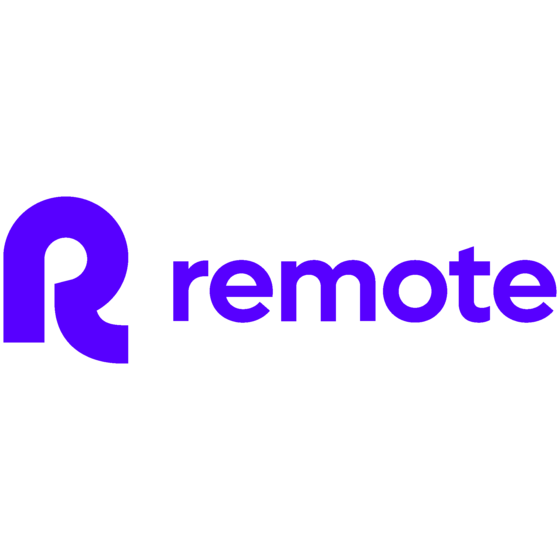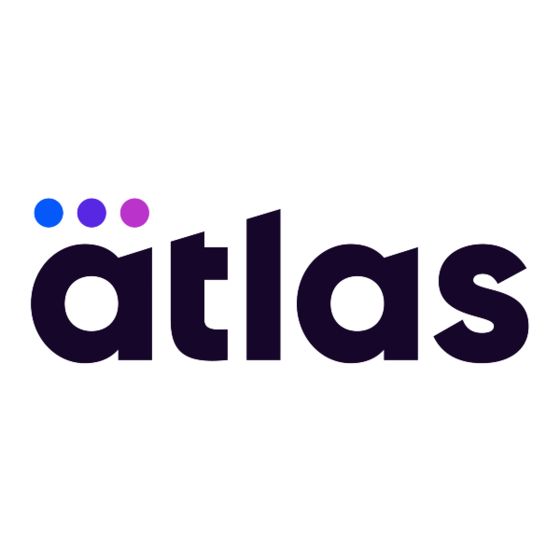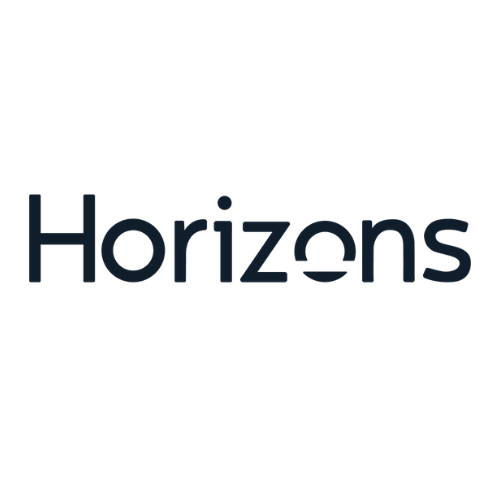10 Best Japanese Employer of Record Service Shortlist
Here's my pick of the 10 best software from the 25 tools reviewed.
Get free help from our HR software advisors to find your match.
Expanding into Japan is exciting—but figuring out how to hire local talent without tripping over employment, payroll, and compliance hurdles can feel overwhelming.
Setting up a legal entity means registering with Japan’s Legal Affairs Bureau, the Japan Pension Service, and other local labor bureaus, not to mention staying compliant with the Ministry of Health, Labour and Welfare (MHLW).
If you’re unsure how to move forward — or which EOR provider to trust — this guide will help you cut through the noise.
Employer of Record (EOR) services let you hire, pay, and support employees in Japan without opening a local entity, so you can build your team faster while keeping operations legally compliant.
Based on a deep dive into the top EOR providers operating in Japan, I’ve curated this list to help you find the right fit for your business.
Market Details for Hiring in Japan
- Capital City: Tokyo
- Currency: Japanese Yen (JPY)
- Payroll Frequency: Monthly
- Official Language: Japanese
- Approx. Population: 125 Million
- Public Holidays: 16 days
Why Hire Employees in Japan?
Japan's workforce is well-educated and the country is regarded as a global leader in industries such as technology, engineering, and manufacturing. It’s known for its expertise in advanced manufacturing, precision engineering, and cutting-edge technology, making it a prime destination for businesses seeking top-tier talent in these fields.
In addition, Japan's focus on innovation, commitment to quality, and strategic location in the Asia-Pacific region also make the market an attractive location for hiring remote talent. For all these reasons, Japan presents a compelling opportunity to hire world-class talent for specialized roles such as software developers, engineers, and R&D specialists.
Why Trust Our Reviews
We've been testing and reviewing HR software + services since 2019. As HR professionals ourselves, we know how critical and difficult it is to make the right decision when selecting a new HR service provider to work with.
We invest in deep research to help our audience make better purchasing decisions. We've tested more than 2,000 tools and 200 service providers for different HR use cases and written over 1,000 comprehensive software reviews. Learn how we stay transparent, and take a look at our review methodology.
Best Employer of Record in Japan: Pricing Comparison Chart
This comparison chart summarizes pricing details for my top Employer of Record selections for hiring staff in Japan to help you find the best EOR service for your budget and business needs.
| Tool | Best For | Trial Info | Price | ||
|---|---|---|---|---|---|
| 1 | Best EOR for a streamlined contract management process | Free demo available | Pricing upon request | Website | |
| 2 | Best for budget-conscious remote team expansion | Free demo available | From $25 - $199/user/month | Website | |
| 3 | Best AI-driven EOR platform | Free trial available | From $579/month | Website | |
| 4 | Best for hiring without local entities | Free demo available | $99/employee/month | Website | |
| 5 | Best for competitive and cost-effective benefits packages | Free trial available | From $29/user/month | Website | |
| 6 | Best for direct EOR services | Free demo available | From $595/employee/month or $49/contractor/month | Website | |
| 7 | Best for labor law compliance | Not available | From $29/contractor/month to $499/EOR employee/month | Website | |
| 8 | Best for an AI-driven global employment platform | Free demo available | Pricing upon request | Website | |
| 9 | Best for a flexible EOR contract with no termination fee | Free demo available | From $49/contractor/month | Website | |
| 10 | Best EOR for accessing Asian talent quickly | Not available | From $300/employee/month | Website |
-

Rippling
Visit WebsiteThis is an aggregated rating for this tool including ratings from Crozdesk users and ratings from other sites.4.8 -

Willo
Visit WebsiteThis is an aggregated rating for this tool including ratings from Crozdesk users and ratings from other sites.4.8 -

ClearCompany
Visit WebsiteThis is an aggregated rating for this tool including ratings from Crozdesk users and ratings from other sites.4.6
Reviews of the Best Employer of Record Services in Japan
To help you find the best EOR service for hiring employees in Japan, I’ve described my top 10 selections in detail, including the specific services each provider offers and how HR teams can use them effectively. I’ve also included 10 more EOR service providers for Japan below in case you’d like more options to consider.
Deel is a well-established employer of record platform that helps companies rapidly employ workers in 150+ countries, including Japan.
Deel owns a local entity in Japan staffed with legal experts to keep track of regulatory changes and ensure all legal obligations are met on your behalf. To hire an employee in Japan with Deel, the average onboarding time frame is 3 days.
Why I picked Deel: Deel excels as an EOR service provider in Japan by offering streamlined contract management, ensuring compliance with Japanese employment laws. Deel also helps organizations offer localized employee benefits for Japanese staff, including private health insurance, life insurance, and social security contributions.
In addition, Deel has launched several new offerings over the past year, including global payroll, global mobility support, integrated Slack tools, and advanced integrations. These services, all combined, facilitate efficient and compliant hiring processes within the Japanese talent market.
Deel Key Services:
Deel offers end-to-end management for your employees based in Japan, covering everything from hiring and onboarding to termination. Their web app is user-friendly and provides a range of features to help businesses manage their remote teams effectively, including contract management and expense tracking.
Their integrated contract management function supports advanced customizations such as stipends, signing bonuses, and stock options. You can also use Deel for visa and immigration support if you want to relocate existing employees to Japan, with Deel managing the entire visa process for your organization in-house.
Deel offers 24/7 customer support and live chat and is known for its fast support.
Pros and cons
Pros:
- Comprehensive employee benefits
- Local compliance expertise
- Fast onboarding process
Cons:
- Potential complexity for first-time users
- Limited customization options
Remofirst is a global EOR service provider on a mission to free employers from geographical boundaries so they can build global teams with ease. They offer EOR services in 180+ countries, eliminating the need to set up multiple legal entities abroad.
Why I picked Remofirst: If you're expanding your remote team into Japan on a budget, Remofirst offers a practical solution. They handle the complexities of local regulations, including Japan’s strict labor laws, ensuring your team meets all legal requirements without you needing to set up a Japanese entity. To simplify your payroll process, Remofirst summarizes and aggregates your EOR invoices for review, showing each EOR employee’s salary in their local currency, including Japanese Yen (JYP).
They'll automatically calculate your team’s hours, time off, holidays, bonuses, and commissions so you don’t have to worry about it. Remofirst also handles everything from employment contracts in the local language to managing statutory benefits like health insurance and pension contributions.
Remofirst Key Services:
Their team of legal experts and HR professionals will ensure your business operations are always compliant with changing Japanese regulations, with compliance documentation accessible at all times through your secure dashboard. Their customer support team is also available 24/7 in case you need additional help. All clients also receive a dedicated account manager as their main point of contact.
On top of their EOR services, Remofirst also provides international payroll and invoice management, global benefits management (including insurance and equity plans, plus time-off management), and employee support with obtaining visas and other immigration documentation. They can even help you allocate equipment to your global employees.
Pros and cons
Pros:
- Robust employee support
- User-friendly platform
- Comprehensive compliance management
Cons:
- Service availability may vary by region
- Dependence on third-party providers for some services
Borderless AI is an Employer of Record platform that lets you hire and pay employees in Japan without setting up a local entity. Built for speed and reliability, it combines AI-driven tools with a global payroll engine so you can onboard talent in days—not months. From contracts to compliance, it’s all automated. You manage the day-to-day. Borderless AI handles the rest.
Why I picked Borderless AI: I picked Borderless AI because it’s built for speed. In Japan, where labor laws and compliance rules are dense, you need a system that keeps you moving. With Borderless AI, I could hire in-country talent without legal headaches or upfront salary deposits. What stood out most was the turnaround—contract generation, onboarding, payroll setup, all in a few days. And if you get stuck, there’s real human support based in North America, not a chatbot or outsourced team.
Borderless AI Key Services:
You can generate compliant Japanese contracts in minutes, set up payroll in JPY without pre-funding, and manage tax filings automatically. The AI-powered HR tools help you stay ahead of regulatory changes and reduce admin work. You also get access to employee benefits tailored to Japanese laws, without sourcing plans yourself.
Integrations with tools like Gusto, Xero, QuickBooks, and Nium let you plug Borderless AI into your existing workflows.
Pros and cons
Pros:
- Provides an AI-powered assistant
- Offers clear, flat-rate pricing
- Facilitates international expansion without the need for local entities
Cons:
- Does not offer direct recruitment or applicant tracking functionalities
- Reporting and analytics tools are not extensive
Native Teams is a global employment platform that helps businesses hire and manage international workers without setting up a local entity. Through its Employer of Record (EOR) services, it handles legal employment, payroll, benefits, and compliance tasks across more than 85 countries, including Japan.
Why I picked Native Teams: Native Teams stands out for its ability to manage the complexities of hiring in Japan, where employment laws are detailed and strict. The platform ensures that your employees are legally employed, handling all necessary documentation and compliance requirements. This includes managing payroll, social insurance enrollment, tax withholding, and visa sponsorship, allowing you to focus on your business operations without worrying about legal intricacies.
Additionally, Native Teams provides localized employment contracts that comply with Japanese labor laws, covering essential terms such as salary, working hours, and job duties. The platform also automates HR tasks, offering easy access to documents and payroll calculations through its dashboard.
Native Teams Key Services:
Other key services include benefits management, enabling you to offer healthcare, insurance, pension, and other mandatory benefits to your employees, which is crucial for attracting and retaining talent in Japan.
Native Teams also offers support for visa and work permit applications, which is important if you have international talent who need to relocate to or from Japan.
Pros and cons
Pros:
- Offers localized payroll calculators for accurate salary and tax computations
- Provides compliant employment contracts and documentation
- Enables hiring globally without establishing a local entity
Cons:
- Covers fewer countries than some competitors
- May not offer advanced HR tools beyond essential employment features
Remote’s global HR solution offers EOR services that simplify payroll, benefits, taxes, and compliance for international workers. You can use their services to hire full-time employees or contractors and gain local market insights.
Once you’re ready to hire an employee in Japan, Remote can complete their onboarding process within 16 days. (Note: if the employee you’re hiring is a non-national, a Right to Work assessment may also need to be completed, adding three extra days to the onboarding period.)
Why I picked Remote: Remote helps companies compete for talent effectively in the global market by lending access to competitive benefits packages. They can help you offer health insurance, dental insurance, vision insurance, disability and life insurance, and mental health support services for your Japanese employees. Remote also doesn’t add any markup to their benefits premiums or administration costs, making them a cost-effective choice.
Remote Key Services:
Services include global payroll processing, intellectual property and invention rights protection, and benefits packages that are tailored for the Japanese market. Their software platform also covers expense reimbursement and time-off requests, which are quick and easy to approve through their online portal.
Pros and cons
Pros:
- Strong local expertise
- User-friendly platform
- Comprehensive compliance support
Cons:
- High cost per employee
- Limited customization options
Atlas HXM is a global Employer of Record (EOR) platform that enables companies to hire, manage, and pay employees in over 160 countries without establishing local entities. By acting as the legal employer, Atlas HXM handles compliance, payroll, and benefits administration, allowing businesses to focus on their core operations.
Why I picked Atlas HXM: When considering an employer of record in Japan, Atlas HXM stands out because of its direct EOR model. Unlike many providers that rely on third-party partners, Atlas owns legal entities in every country it operates, including Japan. This ownership ensures consistent service quality and compliance, reducing the risks associated with indirect EOR models.
The platform also centralizes payroll processing, ensuring accurate and timely payments to employees in Japan while complying with local tax regulations and social contributions. This centralized approach eliminates the complexities of managing multiple payroll systems and ensures that your Japanese workforce is compensated correctly and on time.
Atlas HXM Key Services:
Other key services and features include comprehensive talent onboarding processes that facilitate the smooth integration of new employees into your team, ensuring they are productive from day one. The platform also offers robust compliance management tools, keeping you updated with the latest Japanese labor laws and regulations to mitigate potential legal risks.
Atlas HXM also offers benefits administration and global immigration and mobility solutions, ensuring your employees get tailored and localized benefits and have support with work authorization, visas, and other documentation when moving between countries.
Pros and cons
Pros:
- Ensures compliance with local labor laws
- Direct EOR approach in all their service countries
- Automated payroll processing
Cons:
- Doesn't source talent for you
- Platform could offer more customizability
Omnipresent is a global employment solutions provider, specializing in helping businesses manage international teams. Their employer of record (EOR) service lets companies hire employees in over 160 countries without needing to set up a legal entity. Whether you’re hiring one person or scaling up, Omnipresent manages local employment, payroll, and compliance so you can focus on growing your business.
Why I picked Omnipresent: When it comes to Japan, Omnipresent provides a tailored EOR solution that addresses the country’s specific employment laws and regulations. For instance, they handle all aspects of statutory benefits required by Japanese law, including health insurance, pension, and unemployment insurance. Additionally, Omnipresent ensures that employment contracts are in full compliance with Japanese labor standards, which can be intricate and difficult to navigate if you're not familiar with local requirements.
Omnipresent Key Services:
They also assist with onboarding new employees, ensuring your team members in Japan have everything they need from day one. They even manage local tax reporting, helping you avoid costly mistakes by ensuring your employees' taxes are filed correctly and on time.
In addition to managing the employment lifecycle, Omnipresent provides support for global benefits and well-being programs. You can offer your team members in Japan access to health and wellness plans that are competitive in the local market.
Pros and cons
Pros:
- Easy to manage payroll for global teams in one platform
- Handles tax compliance across multiple countries
- Strong local expertise in employment regulations
Cons:
- Lacks integration options
- Delays in customer support response times
G-P is a leading Employer of Record (EOR) provider that enables companies to hire and manage employees in Japan without setting up a local entity. Their AI-powered global employment platform streamlines hiring, compliance, payroll, and benefits administration to ensure a seamless onboarding experience for Japanese talent.
Why I Picked G-P:
I picked G-P because of its advanced AI-driven platform, which is designed to manage complex global employment scenarios with ease. It allows businesses to onboard Japanese employees quickly using locally compliant contracts tailored to Japanese labor laws. The platform also supports payments in over 180 currencies—including crypto—via bank transfers or Venmo, giving employers the flexibility to operate globally with minimal friction.
G-P’s AI assistant, G-P Gia, enhances the user experience by offering instant guidance on employment regulations and best practices, while their contractor management capabilities allow companies to compliantly hire and manage freelance workers alongside full-time employees.
G-P Key Services:
G-P delivers automated onboarding workflows, real-time expense tracking, and a dedicated support team. Their local HR specialists are fluent in Japanese employment law and cultural expectations, ensuring companies remain compliant while delivering a smooth employee experience.
Whether you're scaling in Japan or expanding across regions, G-P offers full lifecycle support—from compliant contract generation and payroll to contractor oversight and benefits management—within one centralized platform.
Pros and cons
Pros:
- Easy and quick international hiring and onboarding process
- Strong compliance and risk management
- Comprehensive global employment platform
Cons:
- Dependence on the platform for all HR functions
- Limited customization options
Horizons offers streamlined global HR solutions including EOR and PEO services, international payroll and recruitment, and global mobility & immigration support.
Why I picked Horizons: I included Horizons in this list because their EOR service is cost-effective compared to others, and they offer flexible contract terms. You can end your EOR relationship with them at any time without worrying about costly termination fees or other penalties.
Their Japan-based EOR services are administered by their local experts who are well-versed in Japan’s employment laws, including statutory benefits such as annual leave, maternity leave, paternity leave, and childcare leave. Their onboarding process for new employees in Japan is also very quick, with a minimum onboarding time of just 24 hours.
Horizons Key Services:
In addition to their standard EOR services, they offer additional niche service offerings such as tips for doing business in Japan, guides to help with global expansion, resources for strategic mergers & acquisitions, and advice on accessing new and emerging markets.
Horizons also provides cultural training and support to help employees integrate seamlessly into their new work environment. This service enhances employee satisfaction and retention by addressing cultural nuances and fostering a positive workplace culture.
Pros and cons
Pros:
- Cultural integration support
- Strong focus on compliance
- Deep knowledge of Japanese work rules
Cons:
- Service offerings may vary by region
- Dependence on local partners for some services
Links International is a well-known EOR service provider that offers HR outsourcing solutions across numerous Asian countries, including Japan.
Why I picked Links International: They provide detailed support for onboarding and offboarding processes, ensuring smooth transitions for employees. This service includes document preparation, orientation, and exit interviews, enhancing the employee experience and maintaining operational efficiency. Their onboarding process is also very quick, with the ability to hire employees in Japan in as little as 48 hours.
Links International Key Services:
Their services include payroll management, compliance assurance, and employee benefits administration, tailored to meet the unique needs of businesses in the Japanese market. Links International stands out with their extensive local expertise and personalized service approach, ensuring seamless HR operations for companies expanding into Japan.
Their extensive network of benefit providers also helps organizations craft competitive packages that can attract and retain top talent in Japan.
Pros and cons
Pros:
- Personalized and responsive customer service
- Extensive network of employee benefit providers
- Strong local market expertise in Japan
Cons:
- Smaller scale operations might affect scalability for very large enterprises
- Limited to specific regions in Asia
Other Japanese Employer of Record Services
Here are some other EOR service providers in Japan that didn’t make it into my top 10 shortlist, but are still worth considering:
- Mercans
For an advanced EOR management platform
- AYP Group
EOR service for Asian market expertise
- Velocity Global
For navigating complex regulatory landscapes
- Multiplier
EOR service for quick employee onboarding
- Skuad
EOR for intellectual property protection
- Papaya Global
For an AI-based payroll engine
- Rippling
For managing IT requirements for EOR employees
- Rivermate
EOR service for European client companies
- INSGlobal
EOR for fast market entry into Japan
- NNRoad
For compliantly hiring foreign expats who live in Japan
- Gibson Watts Global
EOR service for risk management expertise
- Bradford Jacobs
EOR service for assistance with business expansion into Japan
- Gloroots
EOR service for small businesses or startups
- Safeguard Global
EOR service for NGOs and non-profit organizations
- Sky Executive
For support with corporate expansion across Southeast Asia
Hiring in Japan: Important Details
Here are some key details to note if this is your first time hiring staff located in Japan. Your EOR provider will manage these compliance details on your behalf. However, proactively informing yourself of these details is always recommended before you invest your resources into sourcing staff based in Japan.
In Japan:
- Employment laws in Japan are set by the Ministry of Health, Labour and Welfare (MHLW). In addition, Japan’s Labour Standards Act also specifies labor standards, including working conditions, employment contracts, and hourly wages.
- You can hire employees (full-time, part-time, temporary, or seasonal) or contractors. Your Japanese EOR provider can help you determine the best employee classification option depending on your situation while preventing misclassification errors.
- Japan has both mandatory payroll deductions and other employment or social security contributions that must be collected, including the following:
- Employee’s pension insurance
- Health insurance
- Unemployment insurance
- Long-term care insurance
- National income tax, and the
- Municipal income tax.
- Japanese is the official language in Japan. However, other languages are spoken, including Korean, Mandarin Chinese, and English, particularly in urban areas and among expatriate communities.
- The standard working week in Japan is 40 hours per week for a 5-day work week.
- Overtime is allowed under the Labour Standards Act and is calculated at a premium rate of 125% for overtime, 135% for work on public holidays, and 150% for late-night work between 10 PM and 5 AM. However, employees cannot be asked to work more than six consecutive days without a rest day.
- In Japan, employees are paid monthly, typically around the 25th of each month. Japan also has a 13th-month payment system, usually paid in December as a bonus, with some companies offering a 14th-month payment during the summer.
- Paid vacation in Japan starts at 10 days of paid annual leave per year for employees who have been with a company for at least 6 months.
- There are 16 national public holidays that are celebrated in Japan which employees are paid for, plus several regional holidays and festivals. Understanding and complying with employment norms and legal requirements surrounding Japanese public holidays is one area where your EOR service will shine, managing these occurrences hassle-free on your behalf.
- National public holidays in Japan include:
- New Year's Day (January 1)
- Coming of Age Day (2nd Monday in January)
- National Foundation Day (February 11)
- Emperor’s Birthday (February 23)
- Vernal Equinox Day (variable, around March 20 or 21)
- Shōwa Day (April 29)
- Constitution Memorial Day (May 3)
- Greenery Day (May 4)
- Children’s Day (May 5)
- Marine Day (3rd Monday in July)
- Mountain Day (August 11)
- Respect for the Aged Day (3rd Monday in September)
- Autumnal Equinox Day (variable, around September 23)
- Health and Sports Day (2nd Monday in October)
- Culture Day (November 3)
- Labour Thanksgiving Day (November 23)
- Japan offers maternity leave and paternity leave.
- The maternity leave entitlement is 14 weeks, beginning 6 weeks before the child’s birth.
- The paternity leave entitlement for fathers is 4 weeks, which can be taken within 8 weeks after the child’s birth.
- During these leaves, employees receive 67% of their regular salary from Japan’s Social Security Fund.
- Paid sick leave in Japan is not mandated by law. However, most companies offer between 5 to 10 days of paid sick leave per year.
- The probationary period in Japan is typically 3 to 6 months, during which an employer can terminate the employee with shorter notice or no severance.
- The termination terms in Japan are mandated by the Labour Standards Act. The required notice period is 30 days, though this can be extended based on the length of service and the terms of the employment contract. (This is another area where a local Japanese EOR can provide assistance to ensure the probation period and related severance are handled correctly.)
- Severance pay is not legally required in Japan. However, it is still customary for many companies to offer severance pay based on the employee's length of service and salary.
Selection Criteria for Employer of Record Japan
Uncovering the best EOR services for this list required a deep understanding of how these services can alleviate common challenges, such as legally hiring employees abroad, managing international payments, ensuring compliance with local labor laws, providing competitive benefits, and facilitating smooth onboarding.
Here are the specific criteria I used to carefully compare the service offerings for each provider in this list:
Core Employer of Record Services (25% of total score): To be considered for inclusion in this list, each EOR provider had to offer the following basic services first:
- The corporate structure to legally and compliantly hire employees in multiple countries without a local entity
- The ability to manage cross-border payroll and taxes in compliance with local regulations
- Assistance with offering competitive and locally compliant benefits packages
- Assistance with navigating visa and work permit processes for expatriate employees
- Robust procedures to ensure data privacy and security that comply with international standards, including GDPR and other requirements
Additional Standout Services (25% of total score): To help me narrow in on the best EOR services out of the numerous options available, I also took note of any unique or less common services, including:
- Advanced technology platforms that streamlined payroll and HR processes while still offering ease of use
- Specialized experience in hiring employees within specific new countries or key industries
- Services that enhance remote work compliance and global mobility needs
- Specialized customer support for complex immigration cases
- Assistance with international IT requirements, including managing computer equipment, software licenses, and other asset-tracking requirements
- A focus on eco-friendly and sustainable employment practices
Industry Experience (10% of total score): To evaluate the industry experience of each EOR service provider, I considered the following:
- How many years their business has operated in the EOR space
- Any industry recognitions or certifications the provider may hold in international HR and payroll
- Their depth of knowledge in local labor laws across multiple jurisdictions
- Their expertise in new markets, including how many different countries they offer local expertise in
- Evidence of a strong track record managing global expansion processes
- The combined experience and credentials of their team members, if available
Customer Onboarding (10% of total score): To get a sense of each provider's customer onboarding process, I considered the following factors:
- The availability of comprehensive onboarding materials, such as fact sheets, guides, FAQ repositories, or other training resources
- Support for integrating the EOR provider's software with existing HR systems
- Direct access to onboarding specialists, customer support, or a dedicated account manager during the setup phase
Customer Support (10% of total score): Since the EOR provider will act as your remote workers' legal employer, it's important to ensure you'll receive timely communications and top-level support. To evaluate the level of customer support each company offered, I considered the following:
- The availability of a multilingual support team that covers different time zones
- Multiple support channels, including phone, email, and live chat
- Evidence of responsiveness and effectiveness in resolving issues, as inferred from customer reviews
- The existence of dedicated account managers to provide assistance as needed
Value for Price (10% of total score): To gauge the overall value of each service, I considered the following factors:
- Transparent pricing models without hidden fees
- Comparative analysis of service offerings versus cost
- Flexibility in service packages to suit different business sizes and needs
Keep in mind that EOR services are complicated, and because of that the price tag can sometimes be high. However, the prices for their services still offer a good ROI considering the complexity of the premium-grade services you're gaining.
Customer Reviews (10% of total score): Evaluating customer reviews is the final element of my selection process, which helps me understand how happy real users are with a service. To determine this, I considered the following factors:
- Consistently high ratings across various consumer review platforms
- Specific feedback on the ease of use of the EOR services
- Testimonials highlighting exceptional customer support and problem resolution
Using this assessment framework helped me identify the employer of record services that go beyond basic requirements to offer additional value through unique services, deep industry experience, smooth onboarding, effective support, and overall value for price.
What is an Employer of Record in Japan?
An Employer of Record (EOR) in Japan is a third-party organization that hires employees on your behalf, handling all the legal and administrative responsibilities, while you retain control over day-to-day work.
As the legal employer, the EOR manages payroll, tax deductions, benefits, and compliance with Japan’s labor laws, including regulations set by the Ministry of Health, Labour and Welfare.
It’s a smart solution for companies looking to hire local or foreign talent in Japan without the complexity of setting up a legal entity. By partnering with a Japanese EOR, you offload regulatory burdens and ensure compliant, hassle-free hiring.
EOR vs Legal Entity
If you’re unsure whether to use an EOR or establish a legal entity in Japan, it helps to understand what each option entails. While setting up a legal entity gives you full control, using an EOR is a faster, simpler way to hire in Japan without taking on the regulatory and administrative burden.
Here’s a side-by-side comparison of what each option typically involves:
| Requirement | Employer of Record | Legal Entity in Japan |
|---|---|---|
| Setup time | A few days to a week | Several weeks to months |
| Need to register with authorities | No – the EOR handles it | Yes – includes Legal Affairs Bureau, tax office, etc. |
| Payroll and tax management | Managed by the EOR | Must be set up and maintained internally |
| Employment contracts | Drafted and signed via EOR in compliance with local law | Fully your responsibility, including legal review |
| Social insurance & benefits | Administered by EOR per Japanese law | Must manage enrollment and payments directly |
| Compliance risk | Mitigated by EOR expertise | Fully your responsibility |
| Control over HR operations | Shared – day-to-day managed by you, legal by EOR | Full control |
| Cost of entry | Lower (monthly service fee) | Higher (setup + ongoing admin & compliance costs) |
As this table indicates, using an EOR is ideal for companies that want to hire quickly, test the market, or avoid the overhead of establishing a local entity. For longer-term operations with larger teams, setting up a legal entity may eventually make sense, but an EOR can be a valuable first step.
How to Choose an Employer of Record in Japan
An EOR service can solve many different challenges and simplify the process of hiring and managing staff in Japan. To help you figure out which EOR service best fits your business needs, you need to document your specific challenges first.
As you work through your own unique selection process, keep the following points in mind:
- What problem are you trying to solve? Start by identifying the challenges you're trying to overcome, whether that's managing compliance with Japan’s employment laws and tax regulations, offering health benefits that are compliant with Japanese government requirements, or sourcing staff within a specific Japanese region or prefecture, such as the Tokyo prefecture (Kanto region), the Osaka prefecture (Kansai region), or others.
- Who will benefit from the service? Consider who will manage the EOR relationship (i.e., who will your main contact people be in-house?) and how having an employer of record will improve their day-to-day work tasks.
- What is your budget? To evaluate cost, estimate how many employees you anticipate hiring in Japan. Since EOR providers typically charge a monthly fee for each new hire, this will help you anticipate your monthly costs.
- What outcomes are important? Review the capabilities you want to gain or improve, and how you will measure success. Being clear on your desired outcomes upfront is crucial to avoid wasting valuable time.
- Would the EOR platform work with your technical requirements? Consider how the service provider's software ecosystem would work alongside your existing workflows and systems. Does their software framework integrate with your existing HR software, or would you face data management roadblocks?
Remember every business is different — don’t assume that a Japanese employer of record service will work for your organization just because it's popular.
Trends in Employer of Record Services
As global hiring continues to accelerate, businesses need faster, more reliable ways to manage payroll, compliance, benefits, and onboarding across borders. EOR providers are rising to the challenge with tech-forward solutions that prioritize flexibility, automation, and all-in-one support to simplify international expansion.
Here are the latest trends shaping EOR services and the HR platforms that power them:
- Immigration Support: There is a growing demand for assistance with immigration services like visa and work permit sponsorships, simplifying global talent acquisition processes for client companies immensely.
- Specialized Services for Diverse Needs: Several EOR providers have begun to offer IP and invention rights protection and equity incentive planning services, to cater to the specific needs of their client companies.
- Enhanced Employee Benefits Packages: There's a growing trend in EOR providers going beyond standard healthcare coverage to offer a full spread of enterprise-level medical and health benefits, stock options, and even one-time benefits like moving bonuses. This trend demonstrates an understanding of the importance of attracting and retaining top talent globally.
- AI-Backed Knowledge Bases: Some EOR providers (including Deel) are beginning to offer legally vetted knowledge bases or information wikis that use artificial intelligence to surface answers to common questions quickly. This helps customers source details on hiring within a specific country fast, without relying on human-run support systems.
As the market continues to evolve, these trends are likely to shape the future of international employment, making it easier for businesses to navigate the challenges of global expansion.
For a closer look at specific EOR providers that are capitalizing on these trends, I recommend reading our in-depth reviews of Velocity Global, Skuad, Omnipresent, and Oyster HR.
Key Employer of Record Services
An Employer of Record (EOR) simplifies hiring and compliance in Japan by managing payroll, tax obligations, and labor laws. Key services include:
- Payroll in JPY: Ensures accurate salary payments in compliance with Japanese labor laws, including the Labor Standards Act, covering wage rates, overtime, and record-keeping to avoid penalties from the Ministry of Health, Labour, and Welfare (MHLW).
- Tax Compliance and Social Contributions: Handles income tax, residence tax (jūminzei), and mandatory social insurance contributions such as health insurance, pension (Kōsei Nenkin), and employment insurance (Koyō Hoken), ensuring adherence to the Japanese National Tax Agency (NTA) and social security system.
- Labor Law Compliance: Provides expertise on Japanese labor regulations, including laws on working hours, overtime, paid leave, and termination procedures, ensuring compliance with the Labor Standards Act and mitigating employment-related risks. This ensures compliance with regional, national, and international workforce laws and conventions.
- Talent Acquisition and Background Checks: Conducts industry-specific credential verification and background checks to ensure new hires meet Japanese legal standards for employment and certification requirements.
- Visa and Work Permits: Assists with securing the necessary visas and work permits for foreign employees, ensuring compliance with the Immigration Services Agency of Japan and Ministry of Justice regulations.
- Onboarding and Offboarding: Manages compliant onboarding and terminations in line with Japanese labor laws, reducing the risk of disputes related to severance pay, notice periods, or unfair dismissal claims.
- Benefits Administration: Provides competitive benefits packages, including health insurance, pension contributions, transportation allowances, and meal allowances, tailored to the Japanese labor market.
- HR Support: Offers ongoing consultation on Japanese employment laws, workplace safety regulations, and compliance with mandatory employee documentation, including payroll and personnel records.
- Risk Management and Insurance: Oversees workers' compensation (Rōdōsha Saigai Hoshō Hoken) and ensures compliance with local insurance requirements, mitigating legal and financial risks.
- Multi-Language Support: Facilitates communication with Japan’s diverse workforce through translation and localization of employment contracts, legal documents, and HR materials.
Benefits of an Employer of Record Service
Expanding globally doesn’t have to mean getting tangled in complex employment laws. Partnering with an EOR lets you hire across borders without setting up a legal entity, which saves time, reduces risk, and simplifies compliance.
Here are some key benefits you can expect from using an EOR:
- Quick Market Entry: For organizations aiming to test new markets or hire talent in new countries where they have no legal presence, an EOR offers a swift and efficient solution to initiate operations, saving time and resources.
- Simplified Global Payroll: Using an EOR service simplifies the complex process of managing international payroll, including tax deductions, withholdings, and currency conversions for your employees worldwide.
- Global Compliance & Risk Mitigation: By managing compliance, an EOR service provides expertise in navigating the intricacies of employment laws, tax regulations, and insurance requirements in multiple jurisdictions, helping businesses safeguard their operations against compliance-related risks.
- Enhanced Benefits Negotiation: By leveraging their extensive networks and purchasing power, EORs can negotiate better international insurance rates and secure competitive benefit packages on your behalf, enhancing your ability to attract and retain top talent worldwide.
- Improved Cost Effectiveness: Using an EOR service is a cost-effective way for businesses to enter new markets, compared to the significant costs of establishing a new foreign entity. The latter option involves significant upfront legal fees, plus other costs related to office infrastructure, staffing, and local benefits and insurance coverage.
Understanding the benefits of an EOR service is crucial for strategic planning and operational efficiency. As businesses look towards international markets for growth opportunities, partnering with an EOR provider offers a streamlined, cost-effective, and compliant pathway to global expansion.
Need a bit more firepower to convince your upper management to partner with an EOR service? Focusing on the costs of hiring a foreign employee and how an EOR can simplify the hiring process might just be the winning strategy you need.
Evaluate EORs based on cost, reputation, and whether you’ll actually use their bells and whistles. Some are expensive because they white-label services through local partners.
Costs & Pricing for Employer of Record Services
Typically, the cost of an EOR service follows a fee per-employee, per-month pricing model, which can vary widely depending on a range of factors. This model allows for scalability and predictability in budgeting for international expansion efforts.
In general, EOR services in Japan cost between $300 to $1,700 per employee, per month.
Key factors that can influence the pricing of an employer of record service include:
- Geographic Location: Costs can vary significantly based on the country or countries you're hiring in. This is due to local economic conditions, labor laws, and the complexity of compliance requirements.
- Employee Seniority and Role Complexity: The level and nature of the roles being filled can also impact the monthly cost. Senior positions or roles requiring special qualifications may increase the price due to higher benefits and compensation management costs.
- Number of Employees: The total number of employees being managed can also impact the cost. In some cases, higher volumes may lead to volume discounts, making per-employee costs more economical.
- Custom Requirements: Any specific needs beyond the standard service offering may also contribute to the monthly cost. This may include customized solutions for recruitment, specialized employee onboarding, or unique compliance requirements, all of which can affect pricing.
Some EORs also operate under different pricing models, including a percentage of employee salary model, a fixed pricing model, and custom pricing models. If you'd like to delve deeper into the different factors that influence prices, my article explaining the intricacies of different types of EOR pricing structures is a natural next step.
When considering an EOR service, it is crucial to understand how these factors impact the overall cost to ensure that the service aligns with your business's needs and budget constraints. Anticipating the specific requirements of your international expansion strategy will help you choose the most cost-effective and efficient EOR solution for your needs.
FAQs About EOR Services in Japan
If you’ve got specific questions about the requirements to hire Japanese employees or how EOR services work, these answers to frequently asked questions are a good place to start:
What does an Employer of Record do?
An Employer of Record (EOR) service provider is a third-party entity that can help an organization hire a new employee in a country where it has no physical presence. It’s a useful service for businesses that are expanding internationally but don’t have physical offices established yet, or don’t ever plan to establish them. In these situations, the EOR provider becomes the legal employer of your remote staff on your behalf.
In this type of partnership, the EOR service provider deals with local employee-related matters such as managing payroll, deducting taxes, and administering the onboarding process for new employees. This allows organizations to access global talent while reducing their legal liabilities and compliance risks. This is because the EOR company assumes the legal responsibility for your international new hires on your behalf.
What are the minimum wage requirements in Japan?
In Japan, the minimum wage requirements are determined by both national and regional standards. The national minimum wage serves as a baseline, but each prefecture can set its own rate, which typically exceeds the national minimum.
The national minimum wage in Japan as of 2024 is set at ¥961 per hour. This rate is applicable nationwide, but local prefectures usually have higher minimum wages depending on the cost of living and economic conditions in the area. Some examples include:
- Tokyo has the highest minimum wage, currently set at ¥1,072 per hour.
- Osaka follows with a minimum wage of ¥1,023 per hour.
- Other regions, such as Okinawa and Tottori, have lower minimum wages, around ¥853 to ¥893 per hour, respectively.
Employers in Japan are legally required to comply with these minimum wage standards, and failure to do so can result in penalties. Managing these requirements is another benefit of working with an employer of record in Japan.
Do EOR providers offer other types of global HR services?
Yes, most of the time they do. Many service providers in this space also offer professional employer organization services (also known as PEO services), as well as international payroll services.
PEO services are a type of HR outsourcing that can help you support your international teams. PEO companies can help you with international compliance issues, benefits administration, workers’ compensation, and other HR administrative tasks.
What are some of the consequences of non-compliance?
As an organization, you never want to be deemed as non-compliant in the eyes of any government body. The exact rules and regulations will vary according to the jurisdiction you’re operating in, which is one of the main benefits of using an EOR service provider.
If you don’t use an EOR and you do hire international workers, you may quickly find yourself in non-compliance. The consequences of doing so will depend on the severity of the violation, but they could include all of the following:
- Fines and penalties
- Legal actions such as lawsuits or other litigation proceedings
- Corrective measures and compliance orders
- Revocation of business licenses or operating permits
- Reputational damage if the news becomes public (loss of public trust and loss of internal employee respect)
- Increased monitoring and additional government scrutiny
Companies who fail to follow international labor laws cannot simply say they were unaware of the legalities, and hence, didn’t follow them. That’s where an EOR service can really remove a lot of potential risk and liability from the international hiring process.
Are there any risks to using an Employer of Record service?
Like any business partnership, using an EOR isn’t completely risk-free. While these services offer clear advantages, it’s important to be aware of potential pitfalls as you evaluate your options:
Financial risks:
-
Hidden fees: Some EORs may tack on extra charges for onboarding, offboarding, or ad-hoc HR support.
-
Mandatory benefits: In countries like Japan, legally required benefits are added on top of salaries and service fees—costs that can stack up quickly.
-
Currency fluctuations: Exchange rate swings can affect your payroll totals and international transaction costs.
Operational risks:
- Data security concerns: You’re trusting your EOR with sensitive employee data, so look for providers with strong protections (i.e., think ISO 27001 certification, penetration testing, and clear incident response plans).
Strategic risks:
-
Reduced control: Delegating HR processes means giving up some oversight, which could affect how you manage your team.
-
Reputation impact: Your EOR’s actions reflect on your brand, meaning any missteps on their part can affect employee experience and public perception.
What is a nearshore vs offshore employee?
A nearshore employee is based in a country closer to the company’s location, typically within the same or a nearby time zone, making collaboration and communication easier due to the smaller time difference.
For North American companies, nearshore remote workers may reside in Canada, the Caribbean, or Central or South America.
An offshore employee is located in a country far from the hiring company’s home base, often in a different time zone, to capitalize on cost savings and increase access to a broader talent pool.
For North American companies, offshore remote workers may reside in Asia, Africa, or Europe.
How are employee benefits handled differently in Japan compared to other countries?
Japan’s culture is rich in traditions, including cultural expectations surrounding employee benefits for Japanese employees. While employers must offer statutory benefits like health insurance and pensions, it’s also common (and expected) to provide perks like commuting allowances, seasonal bonuses, and housing support. These extras aren’t just nice-to-haves—they’re seen as a sign of employer reliability and long-term commitment.
Speaking on this subject, Andrew Lokenauth, author of TheFinanceNewsletter, stated:
“While Western companies might see these [employee benefits] as “optional,” they’re basically mandatory in Japan. I learned this the hard way when we tried to move away from them. Our turnover rate jumped from 5% to nearly 25% in just a few months. …The thing is, trying to force Western benefits structures in Japan just leads to retention issues. After implementing a hybrid [benefits] approach, our retention rate improved by 35% and employee satisfaction scores jumped significantly.“
Understanding these cultural nuances of operating within Japan is another benefit of working with a local, in-country EOR partner.
Gain Access to the Best Talent with an EOR in Japan
I hope this article helped clarify how EOR services can simplify the process of hiring Japanese employees. They're truly a valuable resource, whether you're an enterprise organization looking to snap up the top talent in Japan, or a small business or startup trying to break into the Japanese talent marketplace without launching your own entity.
If you found this article helpful, I recommend signing up for our weekly People Managing People newsletter too. You'll get access to the latest insights from thought leaders, as well as our latest podcasts, and more software and service recommendations.


























